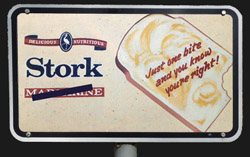Tribeca: Michael Collins‘ „Give Up Tomorrow“ about Paco Larrañaga and his grotesque trial
Even in a world where misjudgment is not unusual, Pacos story sounds extremely grotesque. On July 16th, 1997 the two girls disappear in the city of Cebu. Meanwhile, Paco is in Manila, 500 kilometers to the north – he has 35 witnesses, photos of a night-out and school records of his exam the next night.
Jacqueline will never be found, the other victim might have been found a few days later. The parents don’t recognize any of their daughters, not even the police thinks that thy found one of the girls – until a few days later when they claim the body is Marijoy. Independent forensic experts, hired by Pacos family, are not allowed to examine the body though.
Anything that could go wrong for Paco actually does: He only appears on the suspect list by accident, because he’s been ticketed before. The police just chooses him and five other suspects (they believe in a gang-rape) by random.
The only „evidence“ the police has is a dubious 7th person who claims he participated in the murder with the other six guys. He obviously is forced to say that. His reward is freedom. Paco’s witnesses? The judge doesn’t care about him. Instead he gives the six a double life sentence.
„Give Up Tomorrow“ is very interesting on different levels. It shows how public pressure works – the public, outraged by the most brutal crime in Cebu’s history, demand quick results. In one news report, long before the sentence, a TV reporter says that „these boy have to watch their asses when they bend down for soap in the shower“. During the trial a news station also reenacts „the events“ of the night with the actors who look like the suspects as the „stars“.
Michael Collins also shows how family connections work in the Philippines. The Chiongs have connections with high-ranking policemen and even the president. When the mother of the two dead girls pushes to change the life sentences into death sentences, the supreme court delivers just that.
The Larrañagas are also a influential family in the country (but obviously not enough to change the sentence). Only at the end of the movie we hear that this is the reason why „Give Up Tomorrow“ was made – the producer is Paco’s brother-in-law, which is why the film focuses on him. The other five boys don’t really appear in „Give Up Tomorrow“.
This is one of the weak sides of the documentary (which was done with help from the Sundance Festival and BBC): The connection should have been revealed earlier.
Another weaker part: While „Give Up Tomorrow“ easily convinces the audience that Paco is innocent, it doesn’t give any proof for the filmmaker’s suspicion of the real murderers. The father of the two girls worked for the biggest drug-lord in the area, the movie claims. And just before the father was supposed to testify in a congressional hearing about the drugs, the girl went missing. In the end, the father never talked. We have to accept this as a fact (which it probably is) with no further evidence.
As of today, Paco still is in jail. The new president Gloria Macapagal-Arroyo signed a deal with the Spanish government, so he could be send to a Spanish prison (Paco has a Spanish passport, too). He could get out on probation – but only if he would admit his guilt.

